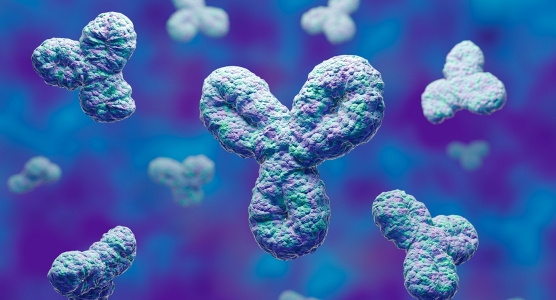The University of Texas MD Anderson Cancer Center and AmMax Bio recently announced a worldwide exclusive license agreement and a clinical trial agreement to advance the development of AmMax’s monoclonal antibody therapy, AMB-066.
The therapy was positioned as a first-in-class treatment option for colorectal cancer (CRC) patients with minimal residual disease (MRD) and potentially for MRD in other solid tumors.
The collaboration between University of Texas MD Anderson Cancer Center and AmMax Bio aimed to build on preclinical discoveries by MD Anderson researchers. Plans were outlined to assess the effectiveness of AMB-066, which targets the colony-stimulating factor 1 receptor (CSF1R), in a Phase IIa proof-of-concept study. Patient enrollment for the trial was expected to commence soon.
“AmMax sets out to bring innovative and practice-changing medicines to patients with cancer. These agreements underscore our commitment to oncology innovation, and we look forward to our collaboration to evaluate AMB-066 in this setting to explore its potential to address a significant unmet medical need.” – said Larry Hsu, Ph.D., chairman and CEO of AmMax

Minimal residual disease (MRD) was described as cancer cells remaining after treatment that have the potential to cause a relapse. In colorectal cancer (CRC), MRD was defined by the presence of circulating tumor DNA without any radiographic evidence of a tumor.
In the US, approximately 20,000 CRC patients were estimated to have MRD following definitive therapy, including surgery with curative intent, with or without neoadjuvant or adjuvant treatments.
These patients faced an elevated risk of relapse or metastatic progression, particularly to the liver. At the time, no approved therapies existed for CRC MRD, and standard care was limited to observation.
The research team is led by Scott Kopetz.

Scott Kopetz, M.D., Ph.D., is a leader in gastrointestinal oncology at The University of Texas MD Anderson Cancer Center. He serves as Deputy Chair for Translational Research, Professor of GI Medical Oncology, Leader of the GI Program for the Cancer Center Support Grant, Medical Director of TRACTION, and Associate Vice President for Translational Integration. Dr. Kopetz is renowned for his expertise in colorectal cancer and advancing translational oncology research.
“Patients with colorectal cancer who have minimal residual disease following standard therapy are at increased risk of recurrence and need more effective treatment options to ensure the cancer does not return. We look forward to collaborating with AmMax to evaluate AMB-066 in this setting, based on our robust preclinical data and a large clinical safety database.” -said Scott Kopetz
A research team had identified AMB-066 as a promising candidate for treating MRD-positive CRC during preclinical studies. These findings were included in the licensing agreement.
Under the terms of the licensing agreement, MD Anderson was to receive upfront and milestone payments, along with royalties based on the net sales of specific products.
About AMB-066
AMB-066 is a potent monoclonal antibody that targets the colony-stimulating factor 1 receptor (CSF1R). It is being developed for clinical evaluation in treating colorectal cancer (CRC) patients with minimal residual disease (MRD).
 mdanderson.org
mdanderson.org
The antibody has been tested in around 200 patients and healthy individuals across five clinical trials for other indications, administered via intravenous, intra-articular, and subcutaneous injections. These studies have demonstrated that AMB-066 is generally safe and well tolerated.
About AmMax Bio
AmMax Bio, founded in 2020 by Larry Hsu, Ph.D., is a clinical-stage biotechnology company dedicated to developing innovative therapies for cancer patients.
The company has established a strong pipeline targeting unmet medical needs and significant market opportunities. Its lead programs include AMB-066 for CRC MRD, AMB-104, a novel antibody-drug conjugate for acute myeloid leukemia (AML), and AMB-051, an intra-articular injection for tenosynovial giant cell tumor (TGCT).
About MD Anderson
The University of Texas MD Anderson Cancer Center in Houston ranks as one of the world’s most respected centers focused on cancer patient care, research, education and prevention. The institution’s sole mission is to end cancer for patients and their families around the world, and, in 1971, it became one of the nation’s first National Cancer Institute (NCI)-designated comprehensive cancer centers.
MD Anderson is No. 1 for cancer in U.S. News & World Report’s “Best Hospitals” rankings and has been named one of the nation’s top two hospitals for cancer since the rankings began in 1990. MD Anderson receives a cancer center support grant from the NCI of the National Institutes of Health (P30 CA016672).
Further Reading:
What 99% of people don’t know about Colorectal Cancer
Highlights from Global Cancer Movement: Challenging the Status Quo in Colorectal Cancer – Day 1
Highlights from Global Cancer Movement: Challenging the Status Quo in Colorectal Cancer – Day 2
Highlights from Global Cancer Movement: Challenging the Status Quo in Colorectal Cancer – Day 3


